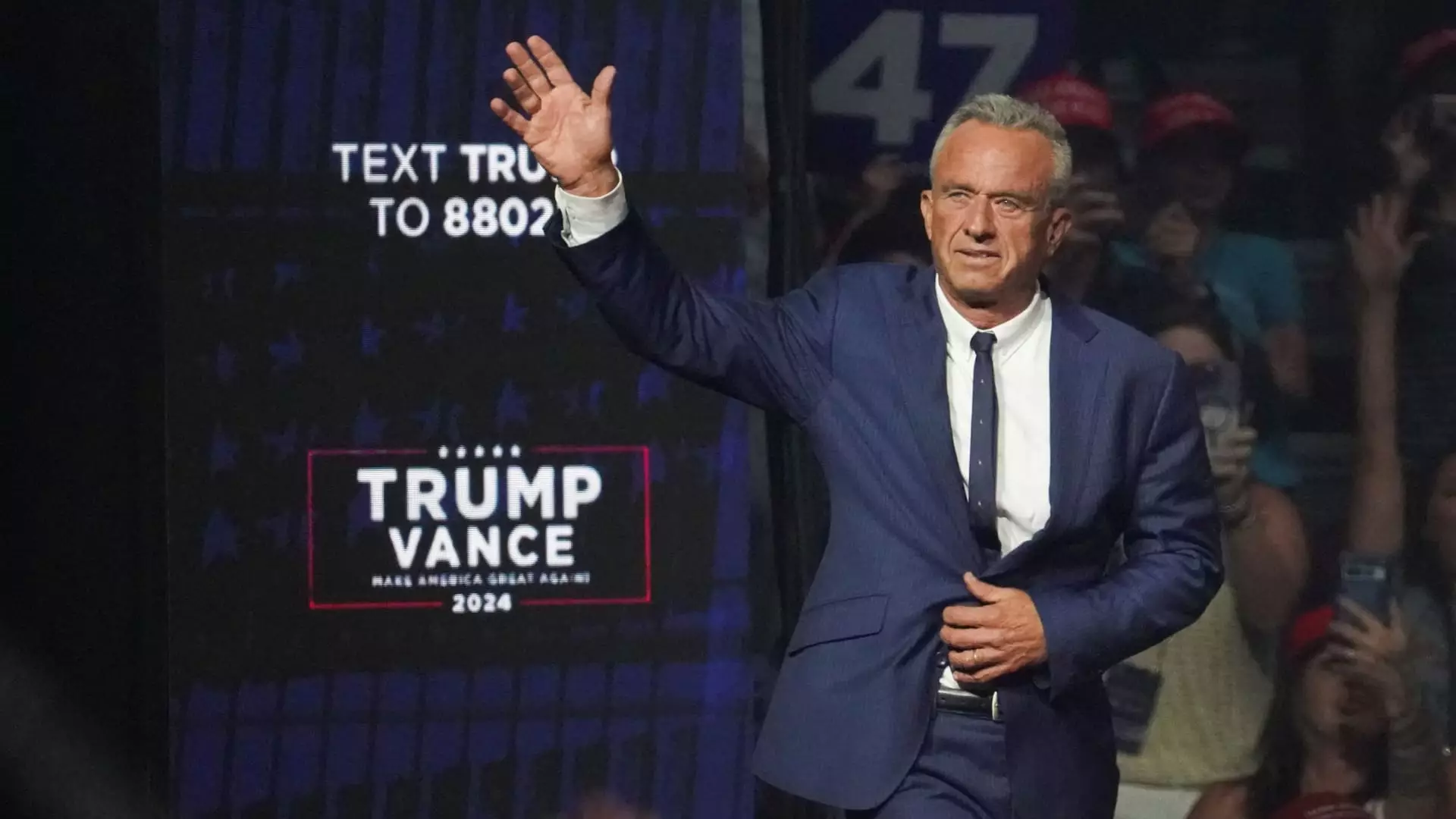The strategy that Robert F. Kennedy Jr. laid out to boost former President Donald Trump’s chances in must-win battleground states has not gone according to plan. Despite his efforts to withdraw his name from swing-state ballots where Trump stood to benefit from a head-to-head matchup with Vice President Kamala Harris, Kennedy is still stuck on the ballot in North Carolina, Wisconsin, and Michigan. This significantly reduces the potential electoral boost Trump could get in these states from Kennedy’s exit.
Kennedy’s challenge to withdraw his name from the ballot in Michigan was rejected by a Michigan Court of Claims judge. The Wisconsin Elections Commission has voted to keep Kennedy on the state’s ballot. In North Carolina, the State Board of Elections has also decided to keep Kennedy on the ballot, leading to a lawsuit from Kennedy to overturn that decision. The legal battles in these states have further complicated the election strategy and have not resulted in the intended outcome.
The stumbling of Kennedy’s withdrawal strategy in Wisconsin, North Carolina, and Michigan is particularly significant as these states are crucial swing states where polling shows that Trump would fare better in a head-to-head contest against Harris, without Kennedy. This leaves only Arizona and Pennsylvania as the states where Kennedy’s exit appears poised to help Trump outright. The failure to remove Kennedy from the ballot in key swing states has weakened the potential electoral advantage that the Trump-Kennedy alliance was hoping for.
With Kennedy still on the ballot in Michigan, North Carolina, and Wisconsin, Trump is unlikely to see the anticipated boost in support in those states. In Nevada and Georgia, where polling shows Kennedy’s withdrawal from the race may backfire on Trump, the overall lead shrinks when the field goes from six candidates to just two. This unforeseen consequence of the failed strategy highlights the importance of careful planning and execution in electoral campaigns.
Despite the lackluster results of the strategy so far, Kennedy’s endorsement could still play to Trump’s advantage in other ways. By appealing to undecided voters disenchanted with mainstream two-party candidates, Kennedy built momentum during his controversy-riddled campaign. Trump is banking on Kennedy’s seal of approval to strengthen his pitch to these voters and secure their support in the upcoming election.
The analysis of Robert F. Kennedy Jr.’s failed election strategy reveals the importance of comprehensive planning and attention to detail in political campaigns. The legal battles, the impact on swing states, and the unforeseen consequences of Kennedy’s withdrawal highlight the complexities of electoral politics. Despite the setbacks, the potential influence of Kennedy’s endorsement on Trump’s campaign remains a key factor to watch in the lead-up to Election Day.


Leave a Reply